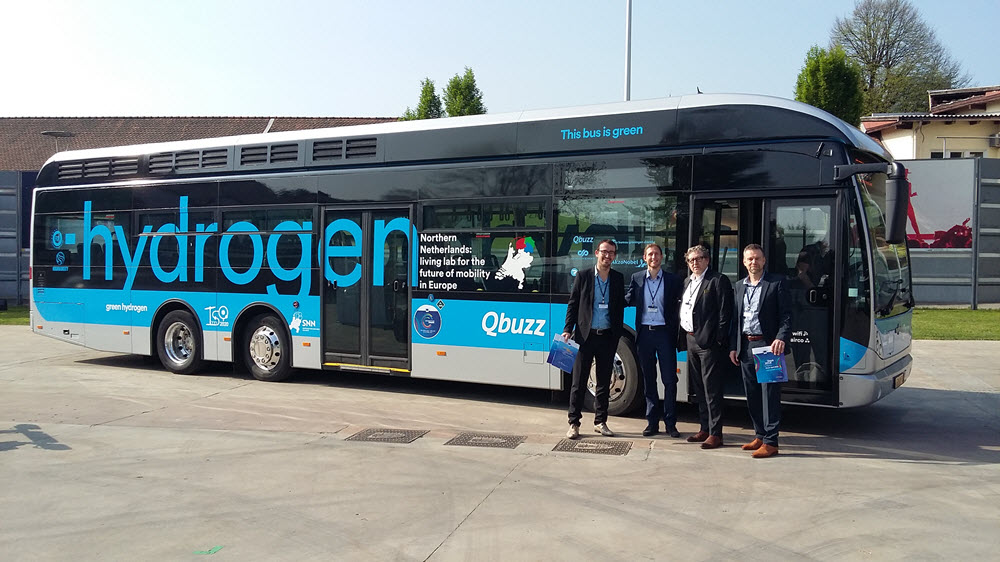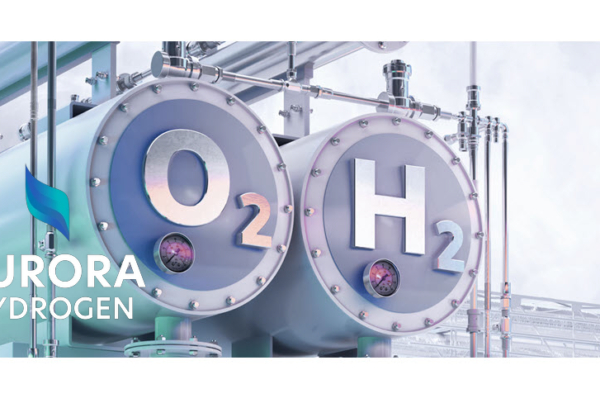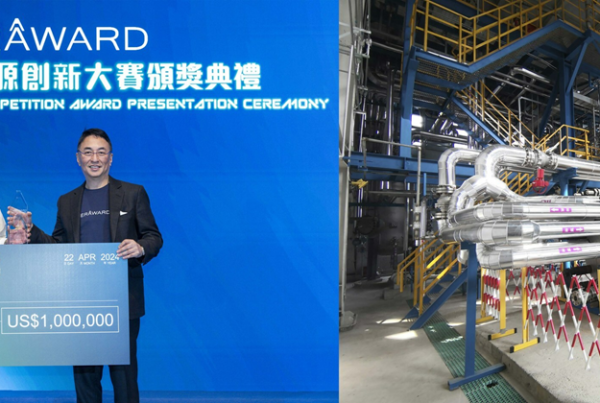
Public Transport Agency Groningen Drenthe has commissioned the construction of a hydrogen filling station, the supply of hydrogen and the purchase of 20 hydrogen buses.
Shell Nederland has won the tender for the supply of hydrogen for the buses and is realizing a hydrogen filling station in Groningen for this project. Carrier Qbuzz has given bus builder Van Hool from Belgium the final order for the delivery of 20 hydrogen buses.
With the choice of Shell for the delivery of hydrogen, the realization of the gas station on the Peizerweg in Groningen and the delivery of 20 new buses, hydrogen is becoming an increasingly important energy carrier in public transport in the Northern Netherlands. The buses and the hydrogen filling station will be operational in December 2020.
The hydrogen-electric buses have a range of 350-400 km on a full tank. During the ride, hydrogen is converted into electricity, which is used to power the electric drive. The range, without intermediate charging, is considerably larger than that of battery buses. These buses can therefore be used well in longer routes in the timetable. The buses run on regional lines in Drenthe and in Groningen.
Fleur Gräper – van Koolwijk, deputy for the Province of Groningen and chairman of the Public Transport Agency is pleased with this development. “This is a huge step. With this, the use of hydrogen as vehicle fuel comes from the experimental phase and becomes one of the energy carriers with which we simply run production. We are at the forefront in the Netherlands and we are at the forefront in Europe. We also want that to make our ambitions for a new energy future for the Northern Netherlands concrete. “
For example, since December 2017 the Public Transport Agency and Qbuzz have had a pilot project in Groningen and Drenthe in which two hydrogen-electric buses run in the regular timetable. These are refueled in Delfzijl, with hydrogen released as a residual product from Nouryon (formerly AKZO).
The hydrogen technology is developing very quickly. This also applies to the new generation of buses that are now being purchased. These are considerably more economical and lighter.
Despite the rapid developments, the costs are even higher than with diesel. Both the two-bus project in Delfzijl and the 20 buses in Groningen are supported by the Ministry of Infrastructure and the Environment, the EU via the FCHJU (HighVLOCity and JIVE2) and the provinces of Groningen and Drenthe.
Read the most up to date Fuel Cell and Hydrogen Industry news at FuelCellsWorks




